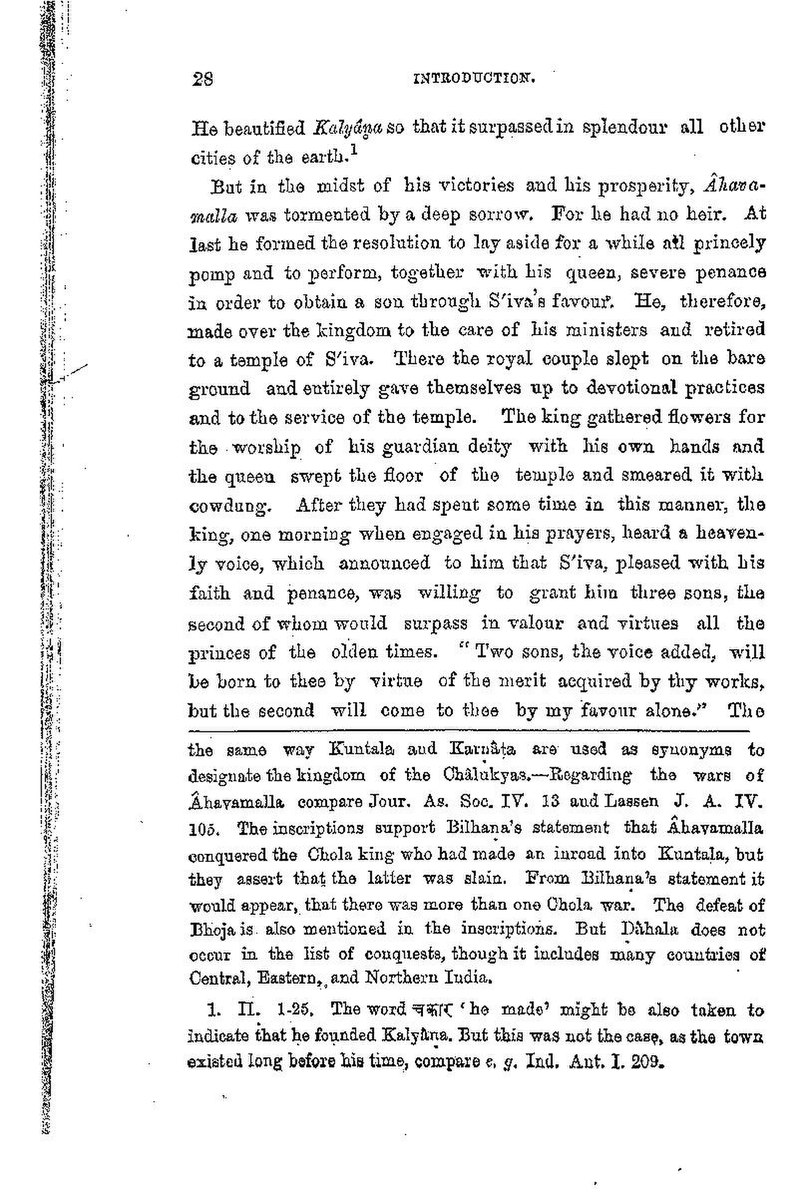28
INTRODUCTION.
He beautified Kalyána so that it surpassed in splendour all other
cities of the earth.1
But in the midst of his victories and his prosperity, Ahava-
malla was tormented by a deep sorrow. For he had no heir. At
last he formed the resolution to lay aside for a while atl princely
pomp and to perform, together with his queen, severe penance
in order to obtain a son through S'iva's favour. He, therefore,
made over the kingdom to the care of his ministers and retired
to a temple of S'iva. There the royal couple slept on the bare
ground and entirely gave themselves up to devotional practices
and to the service of the temple. The king gathered flowers for
the worship of his guardian deity with his own hands and
the queen swept the floor of the temple and smeared it with
cowdung. After they had spent some time in this manner, the
king, one morning when engaged in his prayers, heard a heaven-
ly voice, which announced to him that S'iva, pleased with his
faith and penance, was willing to grant him three sons, the
second of whom would surpass in valour and virtues all the
princes of the olden times. "Two sons, the voice added, will
be born to thee by virtue of the merit acquired by thy works,
but the second will come to thee by my favour alone." The
the same way Kuntala aud Karnata are used as synonyms to
designate the kingdom of the Chalukyas.-Regarding the wars of
Ahavamalla compare Jour. As. Soc. IV. 13 and Lassen J. A. IV.
105. The inscriptions support Bilhana's statement that Ahayamalla
conquered the Chola king who had made an inroad into Kuntala, but
they assert that the latter was slain. From Bilhana's statement it
would appear, that there was more than one Chola war. The defeat of
Bhoja is also mentioned in the inscriptions. But Dahala does not
occur in the list of conquests, though it includes many countries of
Central, Eastern,, and Northern India.
1. II. 1-25. The word 'he made' might be also taken to
indicate that he founded Kalyana. But this was not the case, as the town
existed long before his time, compare e, g. Ind. Aut. I. 209.
पृष्ठम्:विक्रमाङ्कदेवचरितम् - बिल्हण.pdf/३२
एतत् पृष्ठम् अपरिष्कृतम् अस्ति

